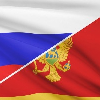Why Montenegro fought against Japan for 102 years
This is an automatic translation.
Click here to read the publication in the original language.
Why Montenegro fought against Japan for 102 years
In historical scientific (and not so scientific) literature one can find a reference to the fact that the Principality of Montenegro declared war on Japan in 1904 in order to support the Russian empire in the conflict. Further information is exhausted by the fact that Montenegro could not provide substantial assistance to Russia.
The network can find excerpts from the Port-Arthur newspaper Novy Krai, dated March 27, 1904, which states that "Montenegro organizes a detachment of volunteers wishing to take part in the Russo-Japanese War ... A couple of hundred people ... armed ... scimitars ". There are reports that after the arrival of volunteers in Russia, the couple were disbanded and sent to Montenegrins in various formations, both in land units and in the fleet, and after the war many Montenegrins returned with awards.
The most famous Montenegrins, participants in the Russo-Japanese War were Philip Markovich Plamenac and Ivan Y. Popovich-Lipovac. The Montenegrin Philip Plamenac is an ordinary ensign of the 1st Chita Cossack regiment, full of Georgievsky cavalier. During the Russo-Japanese War, he was over 70, but according to memoirs of his colleagues, the age did not affect the combat ability of the warrior. Jovan Lipovats was the commander of the Russo-Japanese War, and quite successful and famous against the background of other participants in the fighting, which, incidentally, did not affect the outcome of the war.
The Russo-Japanese War ended with the signing of a peace treaty in Portsmouth. There are no references to Montenegro in the text of the treaty. Most likely, they simply forgot about Montenegro's participation in the war with Japan. Thus, Montenegro and Japan formally continued to remain at war. True, until 2006, many considered this fact a hoax, because no one saw the document itself about the declaration of war.
However, the document most likely was, at least in Japan, believed that the war was formally continuing. Japan agreed to recognize the independence of Montenegro in 2006 only if a peace treaty was signed.
Why Japan or Montenegro did not put up until the Principality of Montenegro existed (1910), it's hard to say. Perhaps, because Montenegro was going through a turbulent period of history, which was accompanied by a change in the form of statehood and loss of independence.
On June 3, 2006, the independence of Montenegro was proclaimed by the decision of the parliament according to the results of the referendum on May 21, 2006. Thus, Montenegro became an independent subject of international law (and also, apparently, the historical successor of the Principality of Montenegro) and there was an opportunity, or even necessity, to settle the unresolved problems of the past.
Akiko Yamanaka, deputy foreign minister and special representative of the Japanese prime minister, arrived in Montenegro in July 2006 to receive an official note from the Montenegrin authorities, which contained an official statement that the war between the two countries was over. Thus ended the longest war of the 20th century, which managed to step into the 21st century.
Evgeny Novozhilov
#EvgenyNovozhilovThis is an automatic translation.
Click here to read the publication in the original language.






































